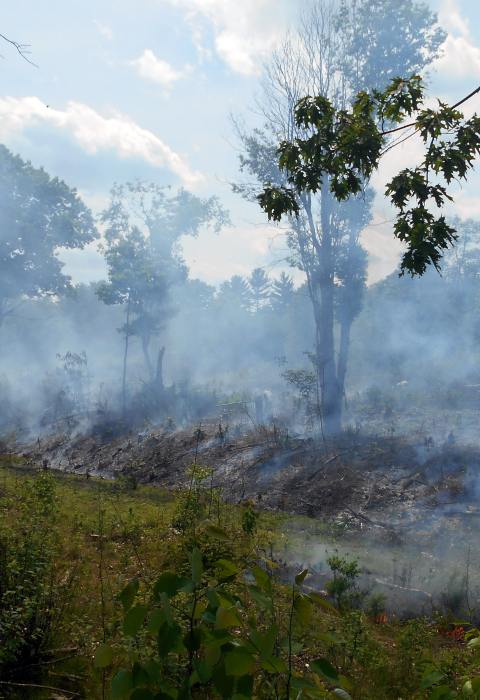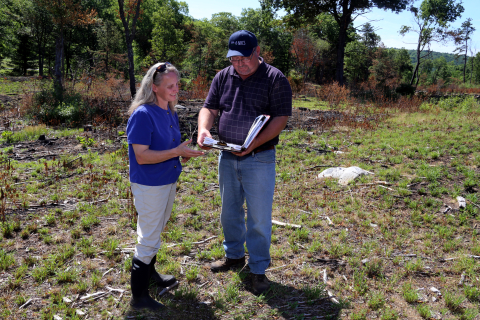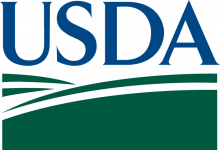Land Trust Project
When East Quabbin Land Trust bought 90-acre Frohloff Farm, the property hadn’t been managed as farmland in many years.
“We were interested in seeing agriculture continue,” said executive director Cynthia Henshaw. “We also wanted to assure water quality and improve wildlife habitat.” Frohloff Farm is next to the Ware River, which has excellent habitat for wildlife, including wood turtles.
Forest Stewardship Plan
A forest stewardship plan called for restoring native pitch pine, oak savannah bluff, and lowbush blueberry heath ecosystems by clearing land that had grown up in white pine and gray birch, and by suppressing nonnative invasive shrubs including glossy buckthorn, multiflora rose, bittersweet, and honeysuckle.
The USDA Natural Resources Conservation Service helped cover costs through their Environmental Quality Incentives Program (EQIP). The stewardship plan called for opening up the forest canopy with fire, so the land trust contracted with a professional fire and forest management company to conduct a prescribed burn.
Fire Boosts Pitch Pine and Scrub Oak
“Fire used to be a natural part of the ecosystem,” said Dave Celino, chief of the Massachusetts Department of Conservation and Recreation’s Bureau of Forest Fire Control. “Native grasses respond favorably to fire. It’s an immediate injection of potash into the soil, and it provides openings” where sunlight spurs the plants’ growth.
Pitch pine and scrub oak evolved with fire, and they thrive following burns because their seeds can fall onto bare mineral soil and resprout without competition from other trees.
“Seeing new pitch pines come up, seeing the scrub oak continue, seeing the little bluestem grasses flourish, that’s a success because with those plant species will come all the invertebrates and the animals that use them,” said Henshaw.
How to Visit
Frohloff Farm remains a working farm. People interested in seeing the habitat improvements can contact Cynthia Henshaw at chenshaw@eqlt.org or phone 413-477-8229.



